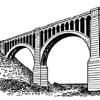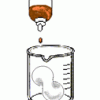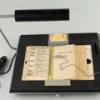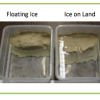Search Results
Showing results 121 to 140 of 313

The Carbon Cycle and its Role in Climate Change: Activity 2
Source Institutions
In this activity (on page 7), learners explore the meaning of a "carbon sink." Using simple props, learners and/or an educator demonstrate how plants act as carbon sinks and how greenhouse gases cause

Sound Representation: Modems Unplugged
Source Institutions
In this activity, learners listen to songs and decode hidden messages based on the same principle as a modem. As a final challenge, learners decode the binary messages in a music video.

Locating a Point
Source Institutions
In this activity, learners work in teams to simulate the process used by Global Positioning Systems (GPS) to determine the location of a fallen meteorite in Antarctica.

Rescue Rover
Source Institutions
In this activity, learners explore how rescue devices are designed to aid professionals during emergency situations.

Disease Detectives
Source Institutions
In this activity, learners examine antibodies and antibody recognition using a model.

The Best Dam Simulation Ever
Source Institutions
This online simulation game explores the different consequences of water levels on the Columbia River in the Pacific Northwest.

Properties of Dust
Source Institutions
In this activity, learners carry out a scientific investigation of dust in their classroom. Learners produce an analysis on graph paper of the dust they collect over the course of a few days.

Bridge the Gap
Source Institutions
Learners work in groups to construct bridges using stale marshmallows and toothpicks.

Tennis Anyone?
Source Institutions
In this activity, learners explore sports engineering and advanced materials development.

Globe at Night
Source Institutions
In this international citizen science activity, learners measure their night sky brightness and submit their observations into an online database.

EEEEK--A Mouse!
Source Institutions
In this activity, learners explore the concept of how engineering solved the problem of human/computer interface.

Designing Bandages
Source Institutions
Learners design different shaped bandages for different purposes. First, they draw their designs on paper.

Foam Peanuts
Source Institutions
Learners compare the properties and solubilities of Styrofoam (TM), ecofoam packing peanuts, and popcorn. First, the solubility of each substance is tested in water.

Telescoping Periscope
Source Institutions
In this activity, learners explore the many uses of periscopes and how this simple device was designed and is used in many applications.

Cast Your Vote
Source Institutions
In this activity, learners explore how voting systems have changed with engineering advances over time. Learners work in teams to design their own voting system using easy to find materials.

Adaptive Device Design
Source Institutions
In this activity, learners explore the concept of how engineering has made possible the development of--and ongoing improvements to--adaptive devices that serve to help individuals with a wide range o
Happy City
Source Institutions
Make a model city happier with LEDs, circuits, motors, and batteries! Groups can think, discuss, design, and build what would make a community happy. Kids can work as part of a team or on their own.

Pipeline Challenge
Source Institutions
In this activity, learners explore how engineers develop pipeline systems to transport oil, water, gas, and other materials over very long distances.

Rubber Band Racers
Source Institutions
In this activity, learners explore the design of rubber band powered cars. Learners work in teams of "engineers" to design and build their own rubber band cars out of everyday items.

Sea Level: On The Rise
Source Institutions
Learners will understand the relationship between climate change and sea-level rise.
